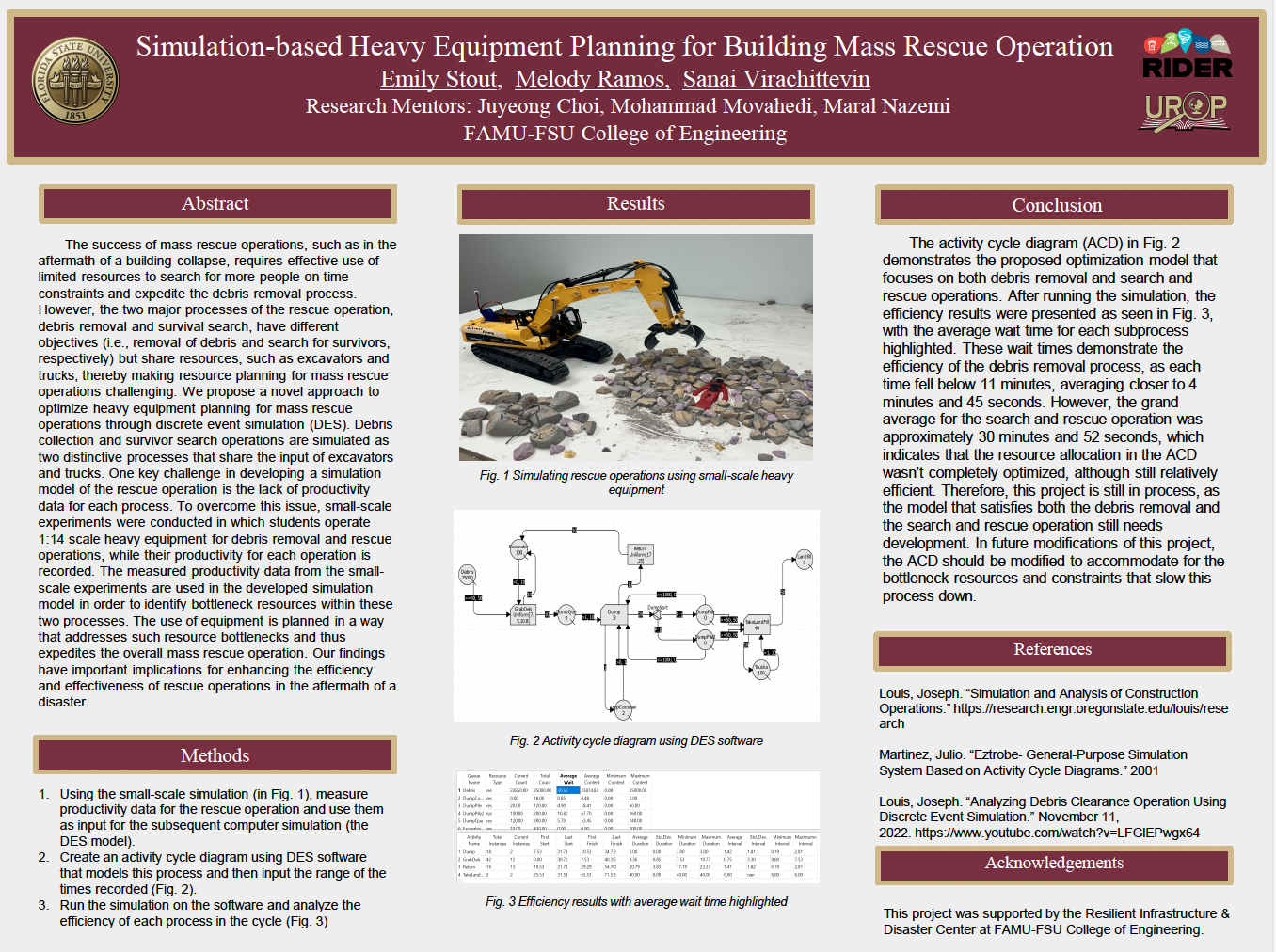Research Symposium
23rd annual Undergraduate Research Symposium, April 6, 2023
Emily Stout Poster Session 2: 1:30 pm - 2:30 pm/ Poster #112

BIO
Emily Stout is a second-year undergraduate student in the Honors program pursuing a degree in Industrial Engineering. As a woman in an underrepresented field, she is passionate about harvesting her leadership skills throughout her academic and extracurricular endeavors. She currently serves as the Treasurer of Florida State's Women's Club Soccer Team, where she is responsible for the facilitation of the organization's financial obligations, travel accommodations, and national communications. In the upcoming school year, she will also serve as the Treasurer for the FAMU-FSU College of Engineering's chapter of the Institute of Industrial and Systems Engineers. Emily is an active member of her sorority, the Gamma Chapter of Chi Omega, where she previously served on the Diversity, Equity, and Inclusion Committee and is actively serving as the Recruitment Morale Chair.
Simulation-based Heavy Equipment Planning for Building Mass Rescue Operation
Authors: Emily Stout, Dr. Juyeong ChoiStudent Major: Industrial Engineering
Mentor: Dr. Juyeong Choi
Mentor's Department: Department of Civil and Environmental Engineering Mentor's College: FAMU-FSU College of Engineering Co-Presenters: Sanai Virachittevin, Melody Ramos
Abstract
The success of mass rescue operations, such as in the aftermath of a building collapse, requires effective use of limited resources to search for more people on time constraints and expedite the debris removal process. However, the two major processes of rescue operation, debris removal and survival search, have different objectives (i.e., removal of debris and search for survivors, respectively) but share resources, such as excavators and trucks, thereby making resource planning for mass rescue operation challenging. We propose a novel approach to optimize heavy equipment planning for mass rescue operation through discrete event simulation (DES). Debris collection and survivor search operations are simulated as two distinctive processes that share the input of excavators and trucks. One key challenge in developing a simulation model of rescue operation is the lack of productivity data for each process. To overcome this issue, small-scale experiments were conducted in which students operate 1:14 scale heavy equipment for debris removal and rescue operations, while their productivity for each operation is recorded. The measured productivity data from the small-scale experiments are used in the developed simulation model in order to identify bottleneck resources within these two processes. The use of equipment is planned in a way that addresses such resource bottlenecks and thus expedites the overall mass rescue operation. Our findings have important implications for enhancing the efficiency and effectiveness of rescue operations in the aftermath of a disaster.
Keywords: Engineering, Civil Engineering, Mass Rescue Operations


